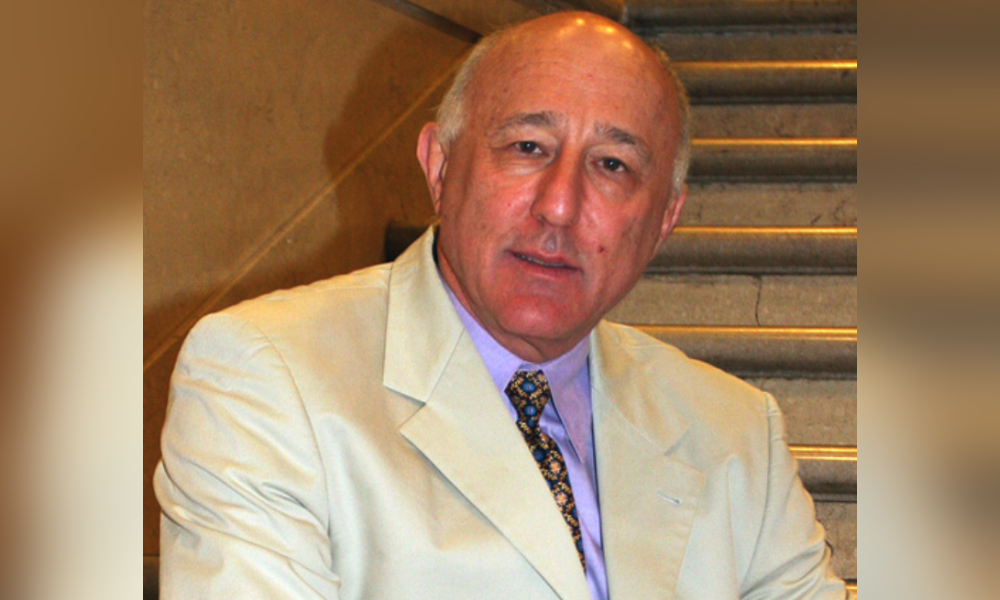
Superior Court found Iran intentionally shot down plane in act of terrorism

In last week’s Superior Court decision which found Iran and its Islamic Revolutionary Guard Corps intentionally shot down Ukraine International Airline Flight PS 752, it was the plaintiff’s expert reports detailing the implausibility of Iranian claims of an accident which tipped the balance of probabilities in their favour.
In a decision released last Thursday, Justice Edward Belobaba found Iran, the IRGC and other defendants are liable to families of victims for shooting down the commercial airliner in Jan. 2020. Justice Belobaba concluded the defendants’ actions were an intentional act of terrorism.
“This decision is unprecedented. In Canadian law, there is no decision like this,” says Mark Arnold, who acted for the plaintiffs.
Generally, nation states are protected from being sued in Canada by sovereign immunity. But civil action can be brought against countries deemed state sponsors of terrorism, which Iran and Syria have been in Canada. To sue Iran, Arnold needed to prove the incident was an act of terrorism. But also, because of the armed-conflict exception to terrorist activity in the Criminal Code, he had to prove Iran’s actions did not arise out of an armed conflict.
In 2012, the Parliament of Canada amended the State Immunity Act and enacted the Justice for the Victims of Terrorism Act, done in response to “the growing threat of international terrorism,” said Belobaba. The changes excepted countries that support terrorism from state immunity to more easily allow plaintiffs to make claims and access any assets those states have in Canada to satisfy judgments.
In Sept. of 2012, via Order in Council, Canada listed Iran as a foreign state sponsor of terrorism.
“[M]ost researchers” who have studied the Jan.8-2020 shoot-down of the Ukraine International Airlines flight have linked it to a decision by former U.S. President Donald Trump five days before, said the decision. On Jan. 3, the U.S. killed Qasem Soleimani, commander of the IRGC’s Al Quds force, with a drone strike. Arnold argued Iran downed Flight 752 in retaliation, and that the Iranian government, itself, linked the two events in its Final Report of the Aircraft Accident Investigation Board of the Islamic Republic of Iran, released May 15, 2021.
“That's the closest we have come to an explanation as to why Iran did that,” says Arnold.
In the report, Iran condemned the assassination and declared it an act of state terrorism. Iranian officials vowed to get revenge and said responsibility would rest with the U.S. Justice Belobaba said the report was “relevant but not determinative.” He said he was more persuaded by other reports which studied the matter, including two expert reports filed by the plaintiffs.
One report was produced by former Member of Parliament and current High Commissioner to the UK Ralph Goodale. Goodale’s report rejects the Iranian claim that the missiles were fired due to a human and technical error. Special Rapporteur to the United Nations Human Rights Council Agnes Callamard drew a similar conclusion.
In another expert report, Dr. Bahman Jeldi of the Canadian Society for Persian Studies determined the IRGC knew the plane was a civilian aircraft and shot it down on purpose. Making Iranian claims untenable are the advanced capabilities of the TOR-M1 missile system and the “redundant systems and procedures to prevent accidental shooting of civilian aircraft,” said Jeldi. So was the fact that the IRGC pre-approved all flight plans, controlled the airspace, fired two missiles and did not target another airplane in flight at the same time, he said.
Also concluding the defendants “planned and deliberately committed the intentional act of shooting down” the flight was Elireza Nader, Senior Fellow at the Foundation for the Defense of Democracies.
The reports led Belobaba to find, on a balance of probabilities, the shoot-down was intentional.
The definition of “terrorist activity” in s. 83.01(1) of the Criminal Code states that it does not include an act or omission committed during armed conflict, done in accordance with international law.
While the onus was on the defendants to lead evidence establishing there was an armed conflict underway, they were not before the court. Belobaba ruled on the issue based on the plaintiff’s evidence.
When Soleimani was assassinated, the Iranians fired missiles into Iraq,” says Arnold. “But before they did that, they apparently warned the Americans that these missiles were coming, so that they could take people out of the line of fire and not have casualties.”
“So, the Iranians did not want to provoke a war… Had there been casualties, it could have sparked a wider war. So, it wasn't an armed conflict. There was a skirmish.”
Arnold has asked for a civil jury and open court to determine damages. A civil jury consists of six people randomly drawn from the community and, says it is appropriate that a wider section of Canadians take part in determining compensation.
“It's not just their loss. It's a loss from our community. People from our community have been taken from it. And my view of it is that it's up to the community to decide what justice looks like and what the compensation should be.”